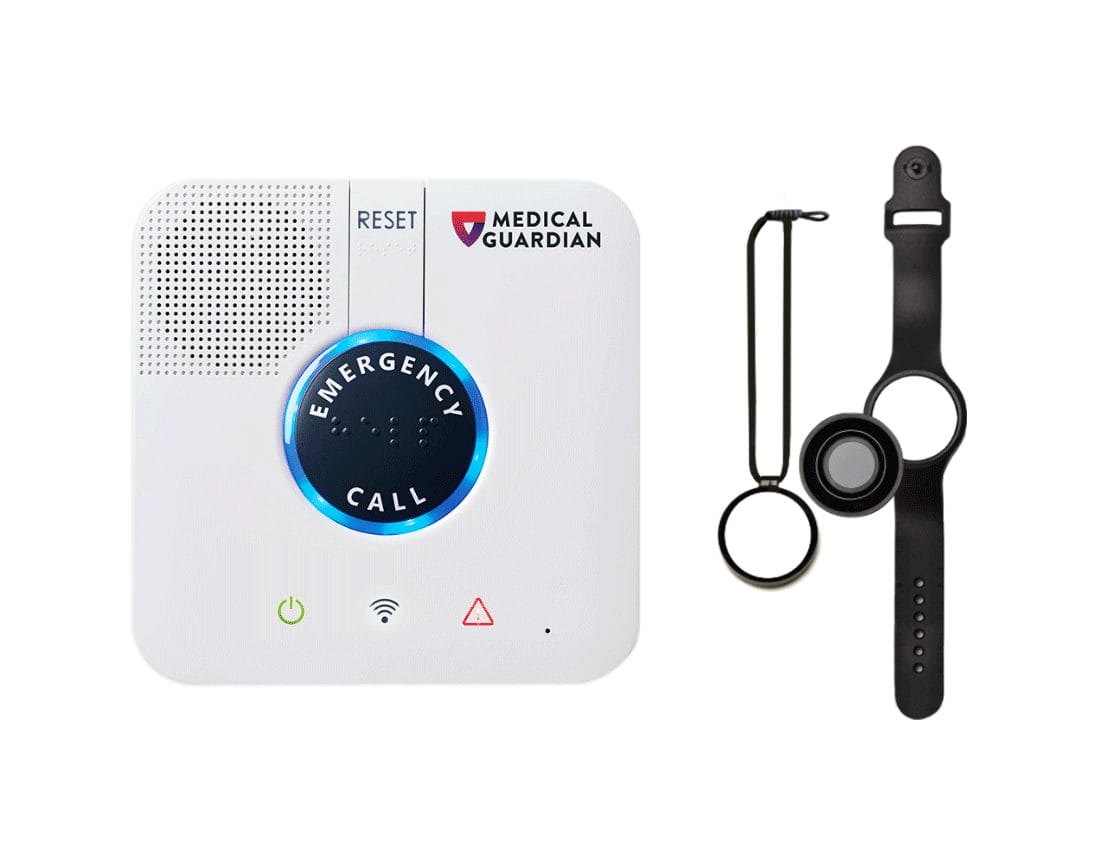[Last updated December 13, 2023]

Filing a tax return can be confusing and tedious, especially if you’re doing it for another person, like a parent or loved one. As you probably already know, the smallest mistake on a tax return can become a big headache. This is something you’ll want to avoid, of course, especially if you’re a caregiver who is preparing for tax season yourself. Here’s what you need to know about how to file a parent’s taxes.
Find out if the senior needs to file
If you are stressing out about filing a tax return for your loved one, you may be relieved to find out that they may not have to file a return. While this doesn’t apply to every senior, many will qualify. Seniors who are over the age of 65, unmarried, and who made less than $14,700 in nonexempt income (excluding Social Security benefits) are generally not required to file a federal tax return. This income amount increases to $27,300 for those over 65 with a spouse under 65 and $28,700 for those who are over 65 with a spouse over 65.
However, if the total of half the senior’s Social Security benefit plus their adjusted gross income (AGI) and tax-exempt interest and dividends is over $25,000 (single filers) or $32,000 (married filing jointly), then a portion of their Social Security benefit is taxable. You can look at IRS Publication 554 or ask a trusted tax professional for more detailed information.
Does a senior have to file a tax return if they can be claimed as a dependent?
As with many matters involving the IRS, the answer isn’t as clear-cut as you might have hoped. In most cases, your loved one will have to file a tax return regardless of whether or not they are a dependent if they exceed the income limitations mentioned at the beginning of the article. If their income doesn’t exceed those figures, you’re in luck — your loved one likely won’t have to file a return.
Not filing taxes when you must is a common tax mistake that seniors make — and can cost you. If you find out your loved one doesn’t need to file, that’s one fewer tax return you need to handle, which would be a welcome relief to Q1 of each year.
Learn the latest tax law changes
You likely don’t intend to add “become a tax expert” to your ever-growing to-do list as you care for yourself, your family, and your parents. But staying current with important changes to the tax code can mean significant savings to you or your parent.
Unless you deal with a business venture or are an accountant yourself, you likely need not be too concerned with tax code changes to business tax laws. You do want to pay attention to tax law updates to personal taxes on the federal level and changes for your state. Learning the latest federal tax law changes that apply to seniors and caregivers can help you gather the proper information to prepare your tax return, whether you do so yourself or hire a tax professional. You can also ask a trusted accountant about any updates that could apply to your parent if they know the unique financial situation.
Assemble basic personal information
If your loved one must file a tax return, you’ll have to collect some of their basic personal information to complete their return. To fill out the return, you’ll need the individual’s:
- •Full name.
- •Address where they live.
- •Date of birth.
- •Social Security number.
- •Bank account number and routing number.
- •Previous year’s adjusted gross income (AGI) if you are filing electronically.
If you want to avoid waiting months for your tax return to process, you may want to file your return online. Online returns usually take a few days to clear, whereas paper-filed returns can take months.
The personal details listed above are basic for filing. The one more challenging detail is the person’s previous year’s AGI, which you may need to hunt down. The previous year’s AGI is a validation mechanism should you submit your returns online. It should be fairly easy to find, though, as it’s line 11 on IRS Form 1040.
Prepare necessary documentation
After assembling the basic personal information needed to file a tax return, you’ll need to assemble the documents necessary to complete the tax return. Often, seniors receive income in a few ways, so you’ll have to look for any forms from 1099s or pension, Social Security, or retirement accounts.
A good rule of thumb is that your parent should receive a tax form from each source of income they have. These forms are typically delivered by mail but are often available online. If you’re unsure if the senior should receive a specific form, don’t be afraid to call the company where the account is held. You’re not the first to have this question, and you certainly won’t be the last. Almost every financial institution will have someone available to answer your tax form-related questions.
Remember that your loved one might not receive any documentation from a Roth 401(k) or a Roth IRA. These types of accounts are entitled to tax-free growth, so in most cases, they won’t owe any taxes on distributions from these accounts.
If you’re uncomfortable preparing the return and can’t afford to hire a CPA, consider utilizing the IRS’s Volunteer Income Tax Assistance (VITA) and/or Tax Counseling for the Elderly (TCE) programs. They’re run by qualified, IRS-vetted volunteers and are free of charge. Click here for more information about these programs and to find locations near you. There are multiple free tax prep help options available to seniors, which you can also take advantage of.
Decide who will sign the tax return
Once you’ve prepared the return, the last thing you’ll have to do before sending it in is to sign it. If your loved one can sign their own return, they may do so; as long as you were not paid to prepare their tax return, you will not have to sign it. If you were paid to prepare the return, you must have a valid Preparer Tax Identification Number (PTIN) and sign the return at the bottom. If your loved one is not capable of signing their own return, you may sign it for them — but there are a few things that need to be done before you can do that. First, if you haven’t already, you must obtain a power of attorney for your older relative. You’ll need to attach a copy of the executed POA as well as completed Forms 8453 and 2848 to the return when filing.
Filing your parent’s taxes: The bottom line
Taking care of your tax return is a big enough annual task. When you add the weight of your parent’s taxes, which may be complex, tax season can become stressful. If you find out whether or not they need to file a return first, become updated on the latest tax law changes to prepare the necessary documents, and decide who will sign the return, you can ensure that your parent’s tax return can be filed efficiently — if they need to file at all.








